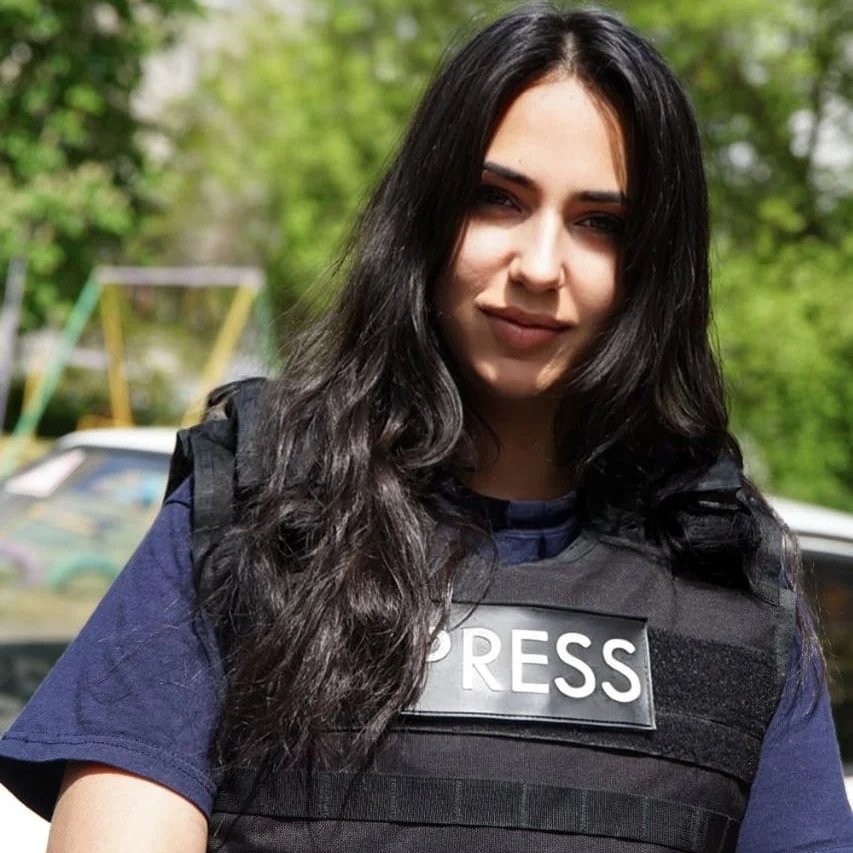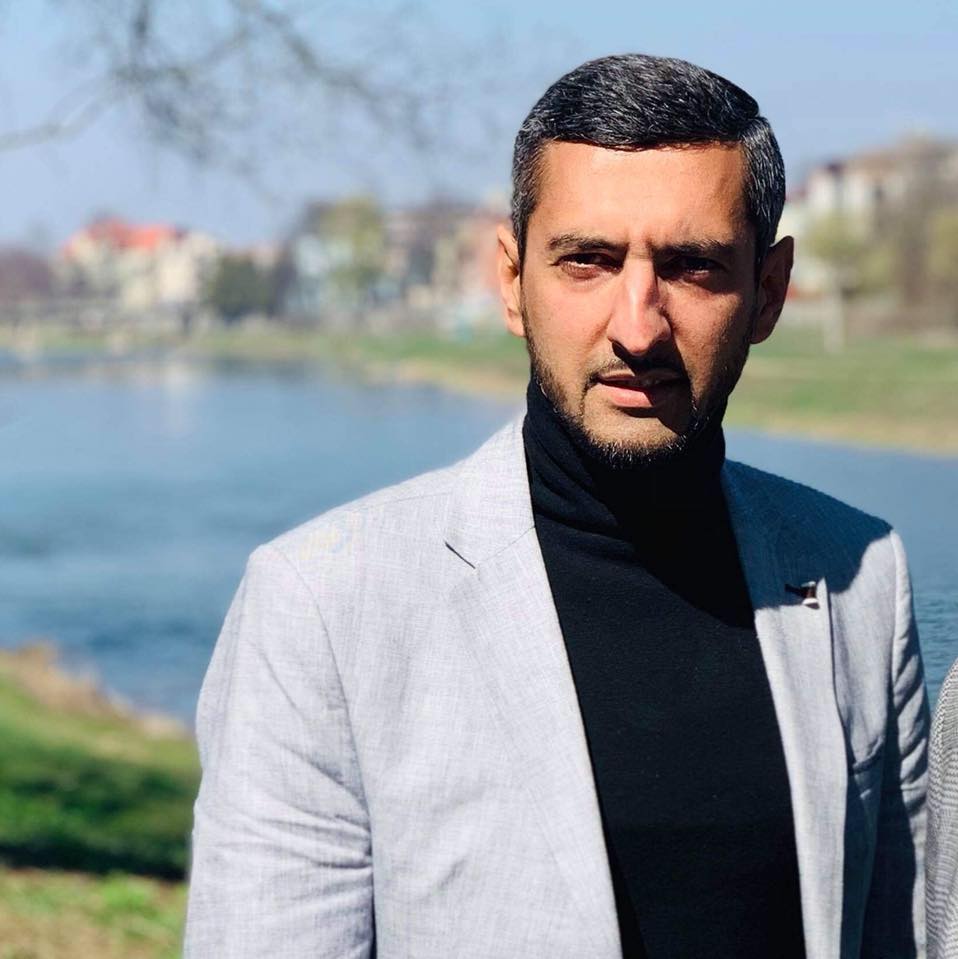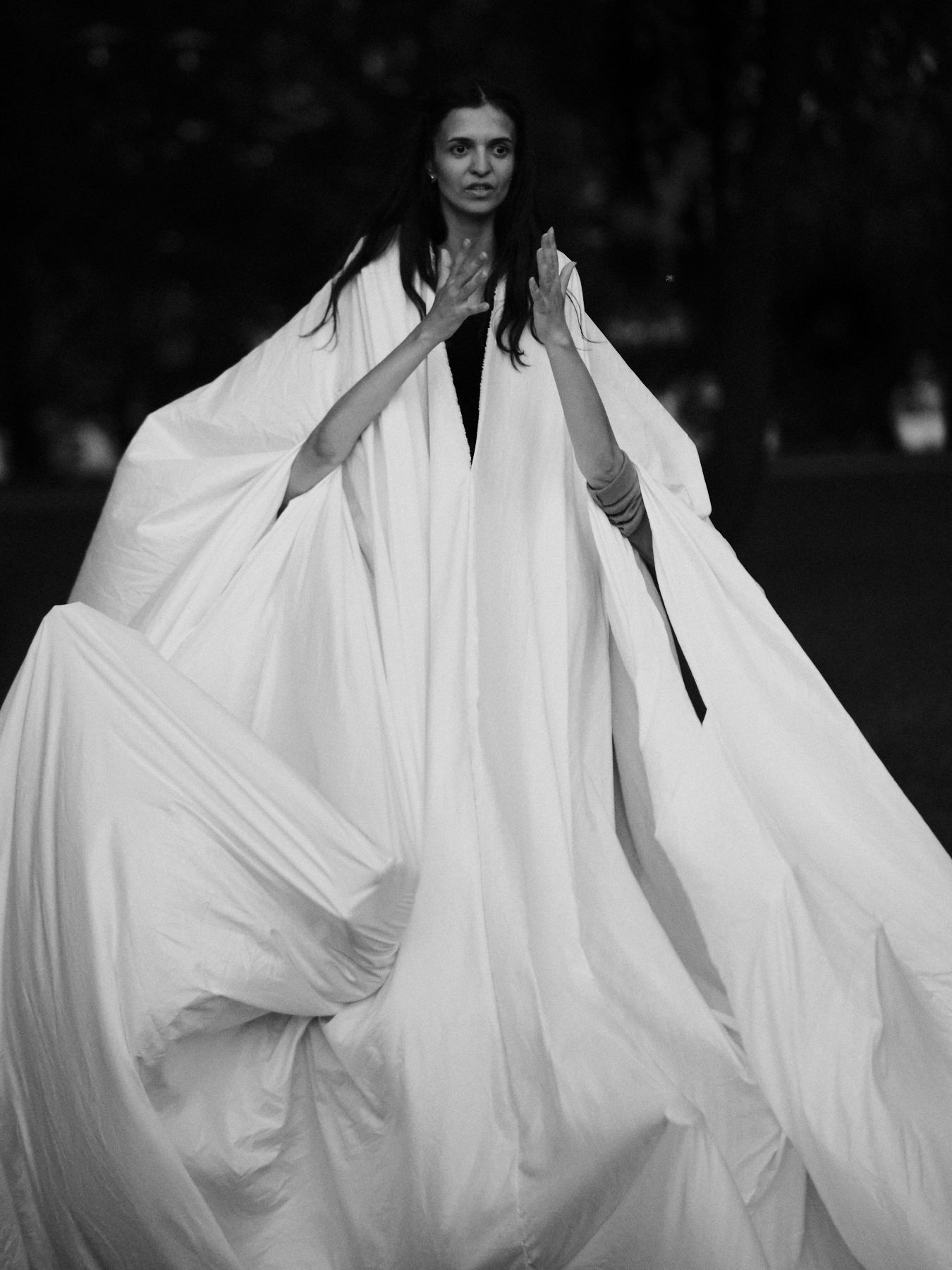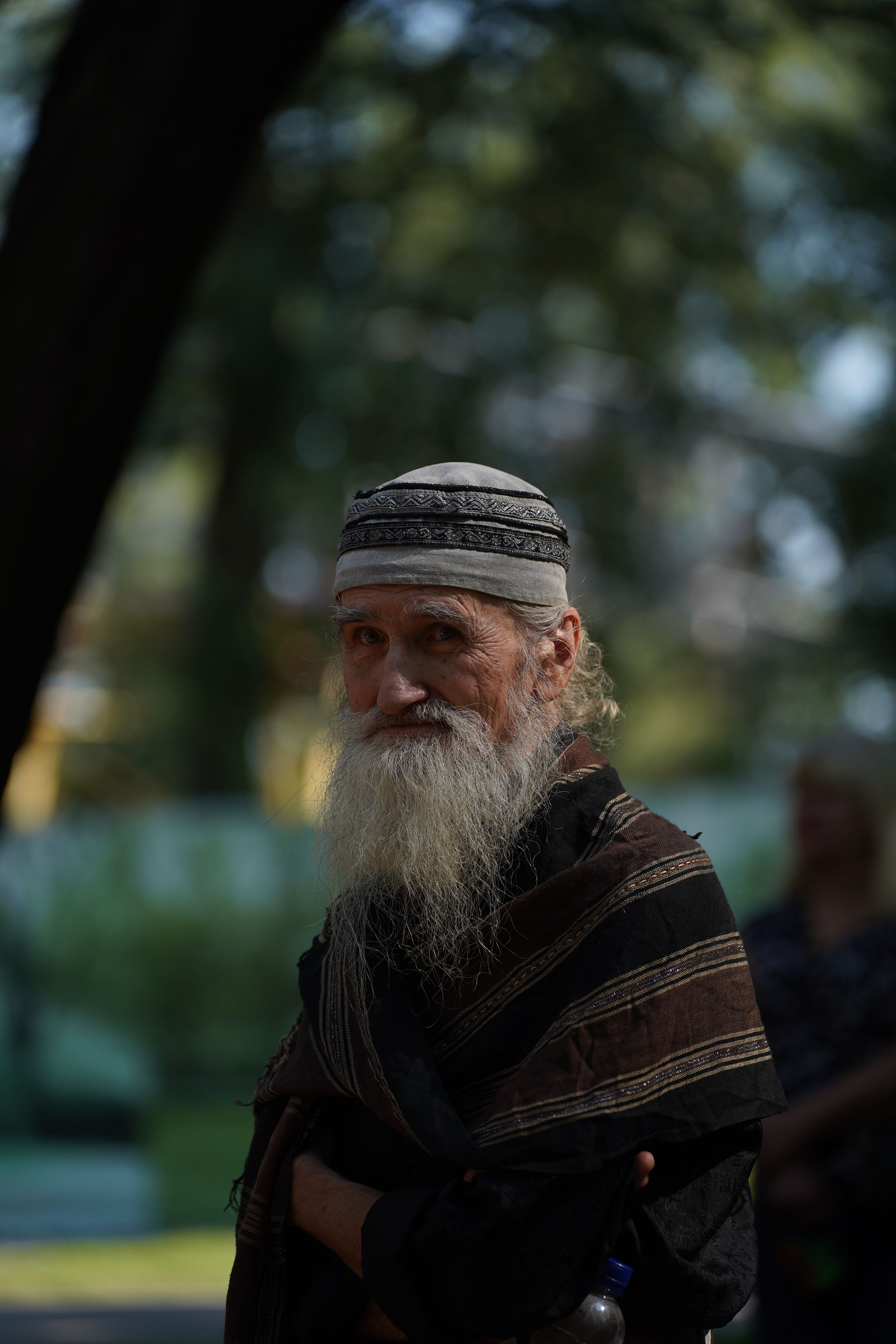Відомі роми, які включені в сучасне українське суспільство
We proceed with familiarising you with interesting people from the realm of culture, science or activism who are creating their own cases. Each one of these people is a member of the Romani community—and is, at the same time, a part of Ukrainian civic society.
Simona Horniak

Photo taken from social networks
Simona Horniak is a journalist and the author of a Romani-language TV show entitled Romano Jivipen which is broadcast on Suspilne: Uzhhorod TV channel. She was born in the city of Uzhhorod where she still lives and works. Simona belongs to the ethnic group Ungri Roma and speaks Slovak language dialect. Simona is 28 years old. She has dedicated almost her entire life to journalism, covering the activity of Romanis in her city and community. Before the full-scale invasion of Russia, Simona Horniak had worked on creative reports on Romani life, customs, and traditions. The war, however, forced her change the profile of her activity. Today, Simona covers topics on Romani militarymen serving in the Ukrainian Armed Forces.
“We talk a lot about our Romani militarymen, as they are defending our country and fighting for our freedom, just the same as everyone else. They love their country, they lose their close ones, they defend Ukraine, and they, too, are forced to relocate due to war. I think that I am where I am supposed to be: in journalism. So I work hard to do what I do—and I see the results of my work”, - says Simona.
Serhii Chichak

Photo taken from social networks
Serhii Chichak is a Romani activist and human rights advocate. He is one of those who continues the cause of Josyp Adam, the former baron and Romani leader in Transcarpathia. Serhii is forty years old. He is Ukrainian on his mother’s line and Lovar Roma in his father’s line. Serhii used to be an outcast among Ukrainians for a long time and a Gajo ("not one of our own") among Romanis, too. Serhii used to study at the Faculty of Law of Uzhhorod National University. He did his Master’s degree and, ever since his student’s years, he tried to help Romanis settle various legal issues. Today, the locals call him baron—although Serhii begs to differ. He says that his profession is to help others. and that is the most important thing. Serhii Chichak is married to Oktavia, Josyp Adam’s daughter. And so today, with their entire family, with Mr Josyp’s daughter Svitlana, Adam and Oktavia continue making her father’s dream come true. They are into enlightenment, cultural, and social activity to the benefit of the Transcarpathian Romanis.
Samira TYMCHENKO

Photographer: Taras PEREVARUKHA
Samira Tymchenko is an educator, an expert, a facilitator, and a coach. Samira is also involved in civic education and public administration. Besides, Samira asserts that there is plenty of art in her life, as she works in performative arts. As far as her Romani origin is concerned, she says that long-time searches in archives have, alas, been in vain:
“I know that my grandad’s family in Poltava oblast was dispossessed of their property as ‘kulaks’ (‘kurkuls’), and that no one mentioned our Romani origin after the Second World War. Although my grandad did receive other Romanis as guests and although he maintained a nomadic way of life, and although he overall poorly accepted social construct and hardly integrated into them. After I was born, the topic of Romani origin reappeared on the agenda of our family due to the fact that I was almost universally referred to as ‘that little Gypsy’. That said, it was me that was the first one (and the only one) to start digging in the archives, yearning to rediscover my Romani identity”.
At the age of 33, Samira Tymchenko returned to the Romani community, where she started to reconceptualise her identity in a more meaningful way.
Samira was born in Cherhnihiv Province whereas she grew up in the city of Kremenchuk.
“When I am being asked where I originate from, I reply that I hail from Poltava Province since it is here that I grew up and shaped my personality, and it is here that many of my ancestors lived. Next came twelve years in Kharkiv but I completely failed to make friends with that city and hence I prefer to not recall that period of my lifeа. Next came Vyshhorod an Irpin where I lived when I worked in Kyiv”.
After the full-scale Russian invasion, Samira Tymchenko took her 5-year-old daughter and left Irpin. Now she temporarily lives in Bordeaux, France.
“I think that one needs not preserve what one may lose. This is a natural part of me, like my bones or my blood vessels. I find it difficult to imagine someone taking this identity of mine away from me, or manipulating me into relinquishing it. My way towards acceptance of my Romani identity has been a long way”.
As far as her ‘place of power’ is concerned, Samira puts it this way:
“I reckon I do not have a particular, geographically defined, place of power. Just the same as I do not have a feeling of home where I belong. I love water, a lot of water, powerful water—be it running down from the skies in the form of rain or in a body of water like the ocean. I like thick coniferous woods, birds, and fishes, dark rocks, black tea, blueberry, and my hair. I reckon if we put all that together, that might well comprise a ‘place of power’—or perhaps even a home where I belong”.
Valerii Sukhomlyniv

Photographer: Ruslan Synhaievskyi
Valerii Sukhomlyniv is a co-chair of the Association of Ukrainian Romanis, a musicologist, and a historian.
For many years, Valerii has been researching Romani music and folk lore. This Romani researcher, in his expeditions and researches, primarily focuses on matters of authenticity of Romanis within the territory of Ukraine, as well as on their present-day situation. Valerii stresses that Romanis have always been a ‘closed community’, regardless of the fact that they have always communicated with their environment professionally.
“That is why, musical and dancing traditions have preserved—and that is why the language, too, has preserved, by and large, as 70% of the modern-day Romani corresponds with Sanskrit. We thus enjoy almost mutual intelligibility with Indians. Despite the fact that there exists plenty of dialects, as our folks have scattered all across Europe. In many countries, Romani music and arts constitute an integral part of cultural life”, — so opines this Romani musicologist.
Apart from his cultural and enlightening activity, Valerii Sukhomlyniv also deals with matters pertaining to the rights of Romani communities in Ukraine, their socialisation, and general discourse of ethnic minorities.
“In order to prevent discrimination from happening, we must be doing what we do at the present time: to make it clear to people that Romanis are not something very bad, incredibly exotic; that these are ordinary people, just like everyone else—they are simply peculiar, very ancient, and have come a long way. Romanis are very much integrated into Ukrainian society, they speak Ukrainian, they respect Ukraine, they love it, and they even marry (notwithstanding the resistance)”, — says Valerii Sukhomlyniv on the matter of present-day Romani context in Ukraine.
See also
- «Невидимі. Стійкість: минуле і сучасність ромів». Як зрозуміти історію ромів через візуальну культу
- Альфреда Марковська: історія життя і порятунку інших
- «Дивись і не забувай»: 15 років Dikh He Na Bister у Кракові
- ФОТОРЕПОРТАЖ: У Києві відкрили виставку про ромську історію та ідентичність
- «Відновлення пам'яті – роми у Варшавському гетто». Історична екскурсія у Варшаві
- PHOTO REPORT: Events commemorating the victims of the Roma genocide in Babyn Yar
- 2 серпня — Міжнародний день памʼяті жертв геноциду ромів
- Коли допомога — це більше, ніж ваучер
- Антициганізм поруч: як розпізнати упередження у звичних словах і жартах
- Стереотип замість культури: як TikTok спрощує ромську ідентичність